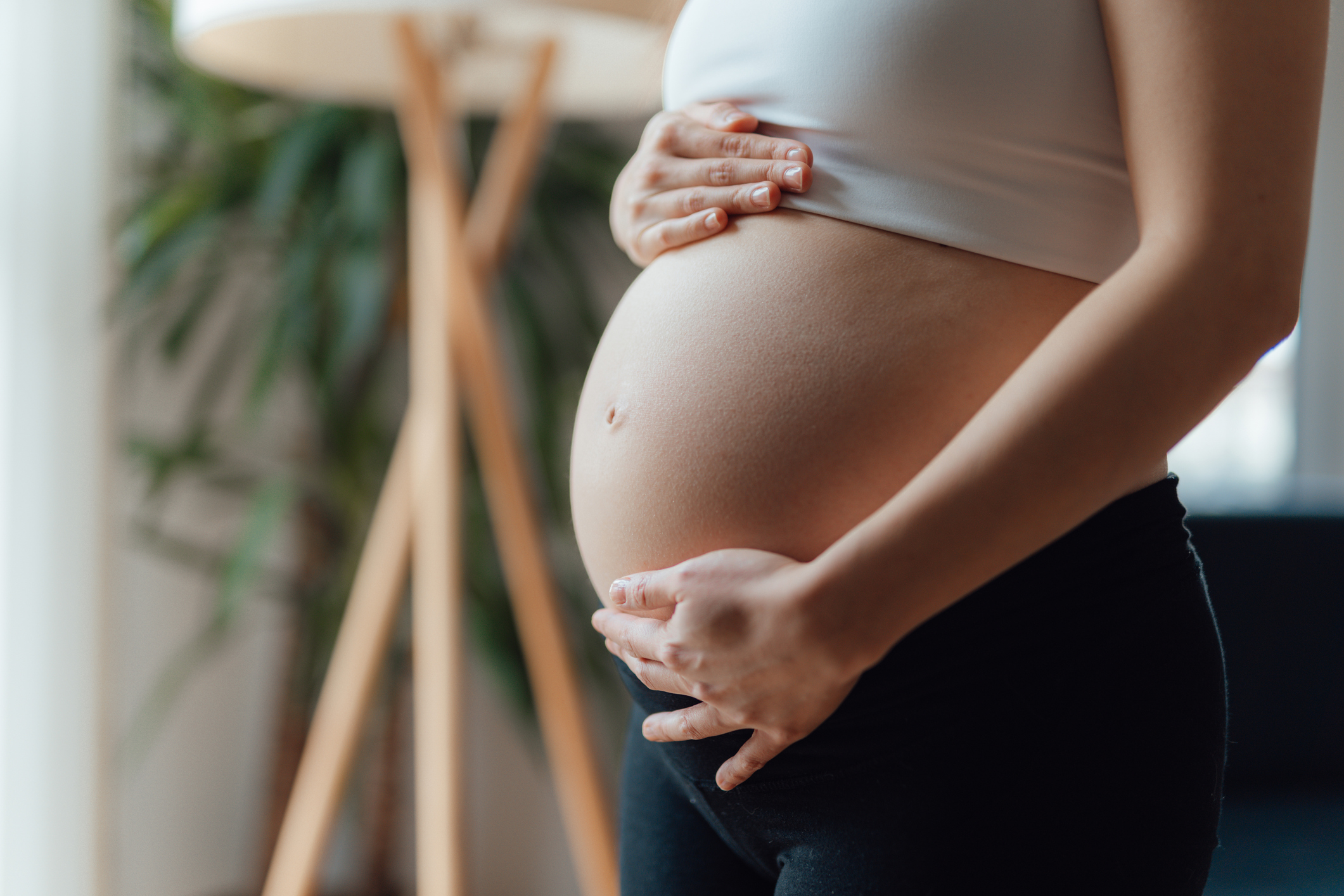Bladder and Bowel Function
As your pregnancy moves along, you might notice some changes in how your body handles waste. It’s completely normal, but it can feel a little different or even uncomfortable at times. Here are some simple tips to help you manage common bathroom challenges and feel more at ease.

Frequent Urination
Your growing uterus puts extra pressure on your bladder, especially as your baby settles into position before birth. In the final weeks of pregnancy, it’s common to leak a little urine when you cough, sneeze or laugh. The good news — frequent urination almost always goes away after delivery.
To help prevent leaks, try Kegel exercises. Squeeze the muscles around your vagina tightly — like you’re stopping the flow of urine midstream — for a few seconds, then relax. Repeat 10 times. Aim for at least five sets a day.
Constipation
During pregnancy, your digestive system slows down and your growing uterus shifts your digestive organs. Both changes can lead to constipation — bowel movements that are hard or painful. Infrequent bowel movements are also common during pregnancy.
Other causes include irregular eating habits, stress, added calcium and iron in your diet, some medications, too little exercise, and not enough fiber or fluids.
To help prevent constipation, try these tips:
- Avoid using any type of laxative unless your healthcare provider recommends it
- Drink plenty of liquids, especially water — at least eight 8-ounce glasses a day. Have a glass before bed, too.
- Eat high-fiber foods such as raw or cooked fruits and vegetables, dried fruit (especially prunes), prune juice, bran, beans and whole-grain products
- Eat small, frequent meals and chew your food thoroughly
- Get more exercise, especially walking, for at least 30 minutes a day
- If you need to take iron supplements, pair them with prune juice
Hemorrhoids
Hemorrhoids are swollen veins in the rectal area caused by increased blood volume and extra weight during pregnancy. They can itch or burn during bowel movements and sometimes bleed a little.
To help prevent or treat hemorrhoids, try these tips:
- Avoid using a “doughnut” pillow, which can reduce blood circulation
- Do Kegel exercises regularly
- Don’t sit on the toilet for long periods or strain during bowel movements. Putting your feet on a low stool can help reduce straining.
- Stay regular by eating enough fiber and drinking plenty of water
- Take a 15- to 20-minute warm bath three or four times a day to relieve discomfort
- Try refrigerated witch hazel pads or an ice pack to soothe pain and itching
Pregnancy brings plenty of changes, but a little preparation can make a big difference. Listen to your body, take care of yourself and reach out to your healthcare provider if something doesn’t feel right. You’ve got this — and we’re here to help you along the way.
Discover Similar Stories
Choose a topic below to read more stories like this one.
Support at Every Step
From conception to delivery and after, our pregnancy and childbirth providers put you first.





